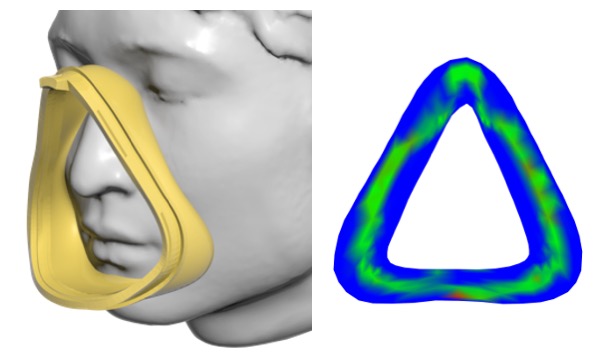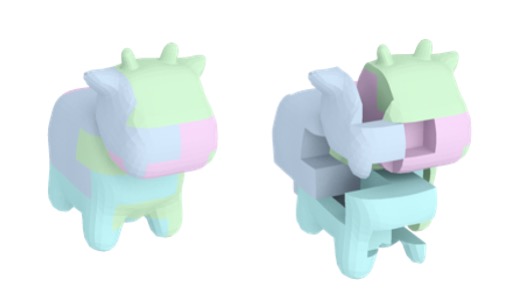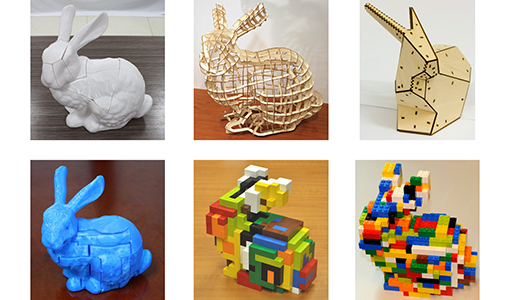Designers traditionally rely on intuition and experience to solve design problems. Computational design is a paradigm in which design problems are formulated mathematically and solved by computational techniques [1]. The formulated design problem takes the form of optimization in most cases, and the optimization is performed as the process of automatically searching for the best design among many options.
In this topic, we focus on computational design of physical artifacts. The goal is to develop computational methods and tools that enable users to design artifacts according to their high-level specifications, e.g., on the appearance and/or functionality. To achieve this goal, our research efforts are devoted to mathematical formulation of design problems, data structures for efficient representation of designs, simulation for rapid evaluation of designs, and optimization algorithms to create desirable designs.



